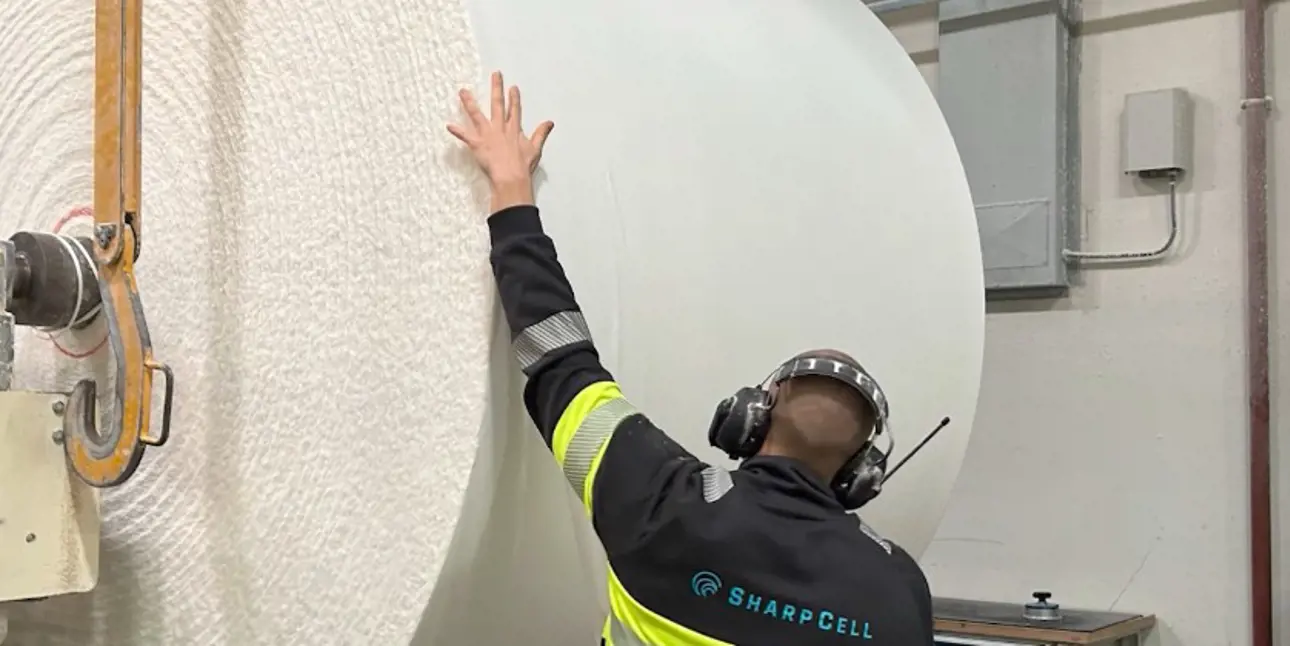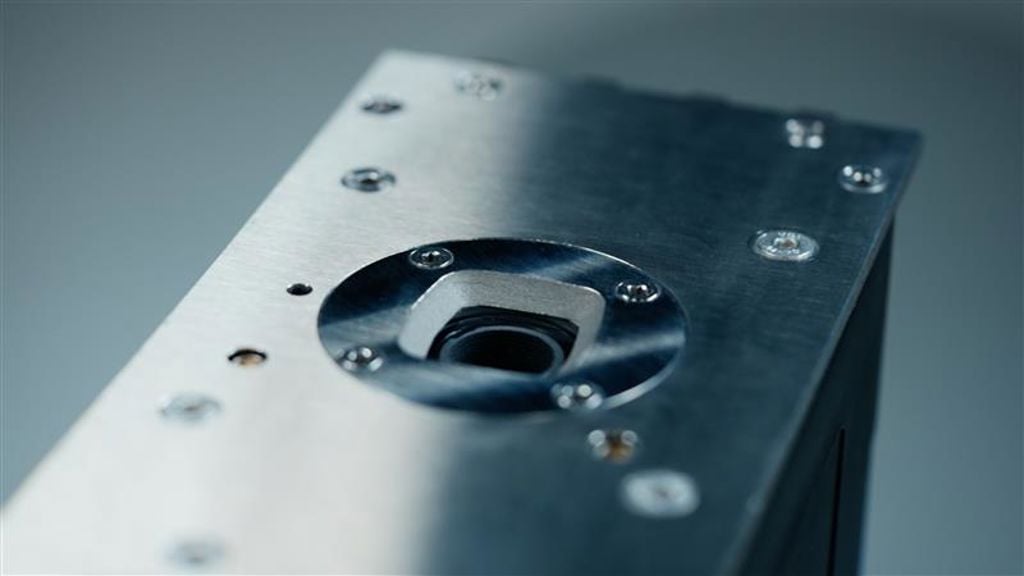Bringing efficiency to sustainable nonwoven production with Valmet’s new Transmission Spectrum Measurement at SharpCell

Developing next-generation materials is more than a strategic direction for SharpCell, a Finnish family-owned producer of high-quality airlaid nonwovens – it’s a core part of the company’s identity. As the company expands its fossil-free and biodegradable product portfolio, SharpCell has increasingly focused on gaining deeper, real-time insights into the raw materials that make up its products.
To accomplish this, SharpCell collaborated closely with Valmet by piloting the new Valmet IQ Transmission Spectrum Measurement (TSM) – an innovative, non-contact sensor designed to measure raw-material components with exceptional precision. The pilot continues the cooperation that started in 2023, when SharpCell installed the Valmet IQ Scanner S.
Meeting the challenges of complex nonwoven production
Nonwoven products often combine several fibers, binders and additives, creating complex material compositions that are difficult to measure accurately in real time. Understanding what is happening in the web is essential for ensuring consistent quality and keeping production costs under control.
SharpCell’s ongoing development of bio-based binder systems adds another layer of complexity to traditional measurement methods. This made their production line an ideal setting to pilot the new TSM, designed to address common industry challenges with ease.
SharpCell’s demanding production environment, process expertise and openness to collaboration made it possible for us to validate this technology at full scale,” says Joonas Kääriäinen, Business Manager, Paper & Board Converting at Valmet.

Precision measurement for sustainable nonwovens
The Valmet IQ TSM uses full near-infrared spectrum measurement to distinguish and quantify fibers, water, binders and other components – including materials with overlapping spectral characteristics. In nonwoven production, this provides operators with significantly more detailed visibility into the composition of the web.
At SharpCell, the system successfully measures water weight, cellulose weight and latex-based binder. Additionally, it delivers excellent results when profiling a fully bio-based, plastic-free binder.
This marks the first successful online measurement of bio-based binders in a commercial nonwoven environment – a major step forward for both SharpCell’s sustainability ambitions and Valmet’s measurement technology.

Accurate results that drive performance
The results showed excellent accuracy, correlating strongly with figures from traditional X-ray measurements. Unlike X-ray methods, Valmet IQ TSM does not use radioactive sources, making it a safe and non-contact alternative. Additionally, it is able to measure raw material compositions and profiles like binder weight, fiber weight, moisture and total weight with one single sensor.
With real-time data from TSM, SharpCell can further optimize the binder profile, reduce polymer usage, minimize waste, improve product consistency across the entire web width – and even lower energy consumption. For nonwovens, even small improvements in raw-material efficiency translate into meaningful environmental and cost benefits.

Building the future of sustainable nonwoven production
For SharpCell, this project is a continuation of a long-term partnership aimed at improving quality, efficiency and sustainability in nonwoven production. Previously, the Valmet IQ Scanner S helped SharpCell achieve up to 20% better drying energy savings and improved visibility into basis weight and moisture variation. Now, the new Transmission Spectrum Measurement brings a completely new level of insight into raw material composition.
As the demand for more sustainable nonwovens grows, advanced measurement tools such as Valmet IQ TSM will help producers better control the complex air-forming process, optimize costly raw-material usage and ensure stable, high-quality products – every time.

